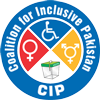The Constitution of Pakistan prohibits discrimination based on the gender and gives right to everyone to live a dignified life and be treated equally. However, transgender persons mostly known as `Khwaja Sira’, have long been a vulnerable group in Pakistan. The government of Pakistan passed the Transgender Persons (Protection of Rights) Act 2018 which aims to provide for protection of rights, relief and rehabilitation of transgender persons and other related matters. The Supreme Court of Pakistan has also given rulings for equal treatment with transgender persons. In 2009, the apex court directed to include the category of ‘third gender’ in the national identity card form. Transgender persons were awarded the right to register as a third gender in NICs in 2012 and a limited number of transgender persons in Pakistan also casted their vote in general elections 2013 by using the new CNIC. A sue moto notice was taken in 2018 by the apex court judge on the plight of the transgender community and the government was directed to address the lingering issue of registration of the transgender persons.
Besides these prominent steps, country still lacks framework of substantive equality for transgender persons. It is responsibility of State to take affirmative steps to bring transgender community at par with the rest of the population and to bring them in the domain of formal equality through end of social, economic, political and electoral discrimination against them.
The population of transgender people in provisional result of Census 2017 was reported 10,418 throughout the country. In presence of such inadequate statistics, it is hard to bring this population in the mainstream and resolve their other like issues including inheritance shares, harassment and etc.
However, the government and civil society organizations (CSOs) are gradually contributing to achieve the target of equality for this population despite all odds. The struggle for mainstreaming and full-fledged acceptance of the marginalized communities and protection to their rights is underway here. Various CSOs and institutions of the government are working for the rights of this marginalized population. The Coalition for Inclusive Pakistan (CIP), a rights-based network facilitated by Trust for Democratic Education and Accountability (TDEA) is also contributing to ensure electoral and political rights to this group. CIP organizations are mobilizing various stakeholders at the local level to commit to advancing transgender’s rights and ensure equality and human dignity for them. The organizations regularly conduct the meetings with relevant stakeholders including heads of various government offices like NADRA, ECP etc in their respective areas to facilitate transgender persons in acquisition of NICs. The advocacy meetings are being held with political leadership and parliamentarians to engage them in their political mainstreaming.
Regional Chapters of CIP have conducted several meetings with political leaders of PPPP,PTI, MQM and PML-N to discuss inclusion of excluded class in political discourse. Their demand to set up wings for transgender persons in their parties was agreed and it was committed to take up the issue with their leadership.
An RTI has been also filed to the Federal Ministry of Human Rights (MoHR) to share the draft of rules after the Transgender Persons (Protection of Rights) Act, 2018 which were compiled by it after consultation with various Ministries, government institutions, provincial social welfare departments, human right defenders and other stakeholders.
The elected provincial representatives and CIP organizations also held press conferences in their respective regions demanding quota for transgender persons in the Local government system. Efforts are underway for the political, electoral and social inclusion of transgender persons with the hope to bring this marginalized segment in the mainstream soon.






